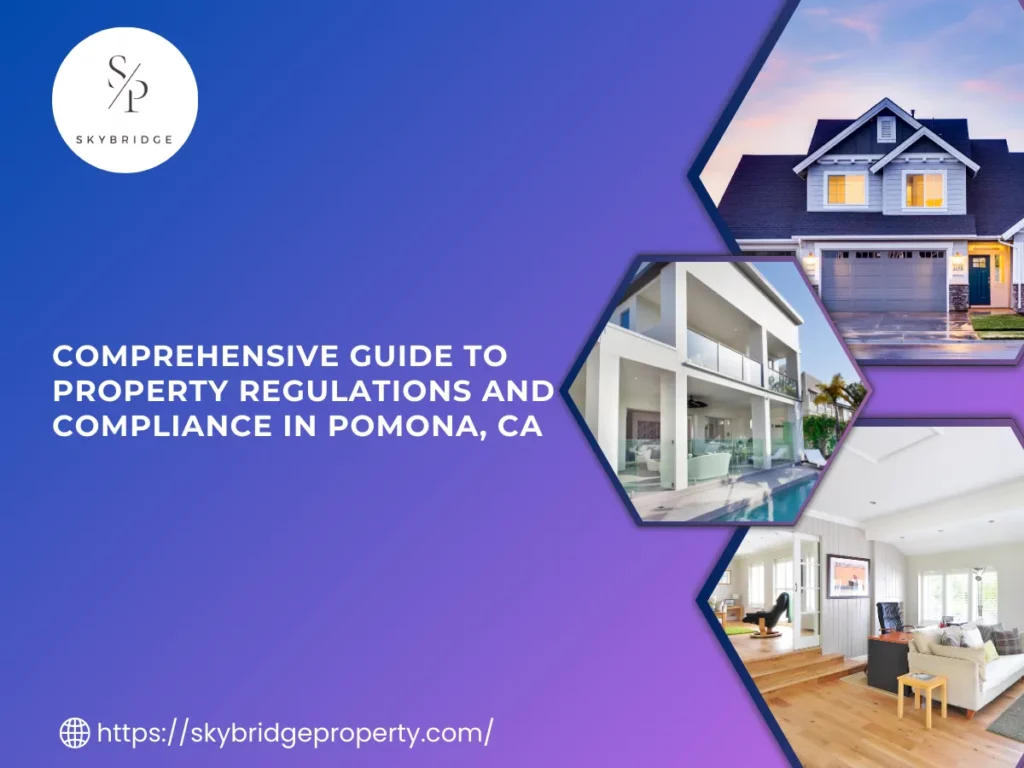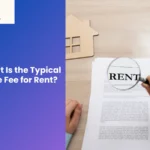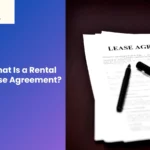Managing property in Pomona, CA, requires navigating a complex set of zoning laws, licensing requirements, and tenant protections. From rent control measures to anti-harassment ordinances and vacant property regulations, compliance is essential for landlords, investors, and developers to avoid fines, legal disputes, and operational setbacks. Understanding these rules ensures that properties remain profitable, well-maintained, and legally compliant.
Whether you’re renting out a single-family home, managing a multi-unit complex, or developing new properties, staying informed about local regulations protects your investment and fosters a stable, thriving rental market. With evolving city ordinances and zoning updates, property owners must adapt to changing legal landscapes to maintain successful, legally sound operations in Pomona.
Code Compliance
The code compliance in Pomona ensures that exterior property maintenance complies with local zoning, building codes, and maintenance regulations. The primary purpose of the City Code Compliance Unit is to achieve voluntary compliance by collaborating with property owners, tenants, other city departments, and external agencies to maintain safe and habitable spaces.
The key enforcement areas of the Code Compliance Division are as follows:
- Landscaping Maintenance: Prohibits tall, dead, diseased, or overgrown vegetation in residential and commercial sites.
- Vacant Structures: Bans graffiti in vacant and open spaces.
- Trash and Debris: Regulates the storage of junk, trash, debris, equipment, lumber, and other items in private property.
- Portable Signage: Disallows the use of portable signs on public sidewalks or streets.
- Public Sign Posting: Forbids the posting of signs or notices on public poles.
- Vehicle Parking: Restricts vehicle parking on public streets and private property.
- Junk Storage: Prohibits storage of junk or inoperable vehicles in residential and commercial properties.
- Parking on Unpaved Surfaces: Does not permit parking on unpaved surfaces. However, parking on private parking with improved surface is allowed.
- Motor Home Parking: Forbids motor home parking in public view. However, parking in front of the driveway with a special permit is granted.
- Shopping Carts: Restricts unauthorized removal of shopping carts from business premises and scavenging from refuse bins.
- Private Property Damage: Regulates broken windows, damaged surfaces, and graffiti in private property.
- Illegal Garage Conversions and Accessory Dwelling Unit (A.D.U.): Oversees unpermitted garage conversions and ADU construction.
Property owners must know all the aforementioned code compliance to avoid legal fines and penalties in Pomona. They should regularly review local regulations and codes concerning property maintenance and usage. Another way is to regularly maintain property by promptly addressing issues like overgrown vegetation, accumulation of debris, and structural damages. Likewise, if they plan to make any modifications to the garage or ADUs, they should first consult with the Pomona Planning Department. Call 909-620-2191 to obtain necessary information regarding permit application.
Similarly, if you notice a code violation, you can contact the Code Compliance Unit at 909-620-2374 or submit a request through the Pomona Go app. Some other important contact numbers for specific issues are:
- Grafitti Clean-Up Crew: 909-620-2265
- Public Property-Pomona Parking Enforcement: 909-622-1241
- Shopping Cart Reporting Hotline: 909-620-2362
Zoning and Development Regulations
The City of Pomona Zoning and Development Code was adopted on July 1, 2024. It regulates land use, intensity, and construction standards to ensure public health, safety, and economic viability. The Code follows the General Plan to create balanced land use, economic growth, and diverse housing options. All new construction, modifications, and changes in land use within the city must comply with zoning regulations.
Pomona’s zoning is divided into zoning districts that define allowed uses and built environment standards. These districts regulate residential, commercial and industrial areas to make sense of land distribution. The Code promotes sustainable development by encouraging mixed-use areas, connectivity and transparency in land use to support healthy growth.
Permits are required for construction, renovation, and zoning variances. The city has objective design standards to ensure public safety and aesthetic consistency. Before starting a project, developers must follow the public involvement procedure, environmental compliance, and zoning approval process.
Recent changes focus on sustainability, equitable development, and efficient land use. The new zoning districts clarify permitted activities, and overlay districts ensure that regulations are interpreted consistently. These changes show Pomona’s commitment to modern, transparent, and balanced planning.
Vacant Property Registration
Pomona property owners must register abandoned, vacant, or distressed properties under the city’s Property Registration Program. According to the city’s Vacant Property Registry Program, any building that shows evidence of vacancy under Article XII of the Pomona Municipal Code is considered vacant. After the city acknowledges the vacancy, owners must register a Vacant Property Registration Form within 10 calendar days. It details that the property is maintained and monitored to prevent safety hazards and maintain property values.
Each vacant property must be registered annually with a $472.15 per-parcel fee, which increases annually based on the Consumer Price Index (CPI). Owners must submit a completed registration form and fee either by mail to the Pomona Development Services Department—Code Compliance Division (P.O. Box 660, Pomona, CA 91766) or in person at Pomona City Hall (505 S. Garey Ave, Pomona, Monday through Thursday, 7:30 a.m. to 6 p.m). Failure to register on time or properly maintain a vacant property can result in penalties and enforcement actions.
One might wonder why the city goes to such lengths to declare vacant abandoned or neglected properties. It’s because neglected properties pose security risks, becoming targets for crime, illegal dumping, and vandalism, which can drive down neighboring property values. Registration ensures regular inspection and upkeep of property standards, encouraging redevelopment. The practice of regular maintenance and upkeep of properties helps property owners and surrounding communities maintain the property value and promote neighborhood stability and investment opportunities.
Owners who fail to register or comply with maintenance standards face an initial penalty of $100 + $22 (processing fee). The fine increases to $220 (including processing fee) for the second offense and can reach up to $522 (with processing fee) for further violations. If the violations accumulate, the city can pursue criminal and legal actions to enforce compliance.
State Licensing for Property Managers
Anyone managing residential or commercial rentals in Pomona must obtain a business license from the Business License team before operating. This applies to individuals, companies, and property management firms involved in leasing, rent collection, or tenant management. Since rental properties are considered business operations, property managers must follow local licensing laws to remain compliant.
In California, property managers handling rent collection, lease agreements, or management services must also have a real estate broker’s license issued by the California Department of Real Estate (DRE). This license applies to those negotiating leases, advertising rentals, or managing payments on behalf of property owners. Individuals can work under a licensed broker as real estate salespersons, but they cannot operate independently.
To obtain a real estate broker’s license, applicants must complete eight real estate courses, gain two years of experience, and pass the California Broker License Exam. After passing, they must submit a license application with required fees and background checks. Additionally, all property managers in Pomona must register with the City’s Business License Program before offering services.
Licensing ensures professionalism, accountability, and compliance in property management. Licensed managers follow legal and ethical standards, reducing risks for landlords, tenants, and investors. By requiring both state and local licenses, Pomona helps maintain a well-regulated rental market and prevents fraud or mismanagement.
Disclosure Requirements
The Natural Hazard Disclosure Act requires sellers and brokers in California to disclose environmental hazards to buyers before closing escrow. These disclosures help buyers understand safety concerns, insurance limitations, and long-term property risks. Without disclosure, sellers may face lawsuits, fines, or even cancellation of the sale.
One of the biggest parts of disclosure is determining whether a property is in a flood zone, fire zone, earthquake fault zone, or near hazardous waste sites. These must be clearly stated in the Natural Hazard Disclosure Statement (NHDS) so buyers can make informed decisions. If a development project will significantly impact the environment, it may require environmental review under the California Environmental Quality Act (CEQA).
Not disclosing known hazards can result in lawsuits, fines, and additional compliance requirements from local agencies. Buyers who find out later that undisclosed hazards existed may sue for misrepresentation. At the same time, the city will impose new environmental regulations that may require costly changes or restrictions on property use.
To verify disclosures, buyers should review the NHDS report and contact local planning or environmental agencies for more information. The Pomona Planning Division is responsible for CEQA compliance and will ensure that projects meet environmental standards before approval. By verifying hazard disclosures early, buyers can avoid hidden liabilities and legal issues.
Anti-Harassment Ordinance
The Pomona City Council passed the Anti-Harassment Ordinance on 16 September 2024 to protect tenants from landlord harassment. The ordinance forbids actions that might be considered coercion, intimidation, or retaliation and declares it unlawful to pressure tenants through unjustified evictions, rent increases, or service reductions.
Under this ordinance, landlords cannot evict tenants without just cause, raise rent unfairly, or cut off water, electricity, or repairs as revenge. Threats, intimidation, and persistent violations of tenant rights are also violations. Even discussing voluntary buyouts or asking for certain tenant information can be harassment.
Violating the Anti-Harassment Ordinance can result in a fine of up to $1,000 per offense or 6 months in jail. The law mandates strict enforcement, so courts have limited discretion to adjust the penalties. Repeated violations can also result in lawsuits from tenants or the loss of your rental license, making compliance integral for landlords.
Tenants experiencing harassment can file a complaint with local housing authorities or seek legal aid from tenant advocacy groups. Documentation of incidents, written communication with landlords, and witness statements can help with your case. Staying informed about tenant rights and available legal resources will help you get fair treatment and protection under the law.
Pending Rent Control Measures
Pomona City Council is considering permanent rent control measures to replace the current temporary rent stabilization ordinance. One key change is a 6% cap on annual rent increases versus the current 4% tied to the Consumer Price Index (CPI). Some officials wanted to keep the 4% cap, but the proposal was shot down 4-3, reflecting the ongoing debate over tenant protections vs. property owner interests.
The proposed ordinance has landlord registration fees and city-funded legal aid for tenants being evicted. Supporters say that will increase tenant stability and prevent unfair rent hikes. In contrast, opponents say it will financially strain small housing providers. Higher costs and more legal burdens could lead some landlords to sell their properties, shift ownership to corporate investors, and reduce affordable housing options.
If passed, these policies will change the rental landscape in Pomona and bring both benefits and challenges. Tenants will have stronger protections against rent hikes and unfair evictions but landlords will face rising operational costs and administrative burdens. Smaller property owners will struggle to keep up, which would reduce investment in rental housing and result in unintended market shifts.
Until a final decision is made on permanent rent control and related measures, the temporary rent stabilization rules, which limit rent increases and outline tenant rights and relocation protections, remain in effect.
How Skybridge Property Group Helps You Stay Compliant?
Compliance with zoning laws, licensing requirements, and maintenance regulations is crucial for property owners and investors in Pomona. Violations can lead to fines, legal issues, and rental restrictions, so staying updated on local ordinances and property standards is essential. However, managing compliance can be complex, given ongoing changes in rent control, tenant protections, and vacant property regulations.Pomona Property management through Skybridge Property Group ensures landlords comply with local laws and regulations. Our expert team assists with zoning adherence, licensing renewals, and maintenance coordination, reducing legal risks and ensuring smooth property operations. By partnering with Skybridge Property Group, property owners can maximize their investment potential while staying fully compliant.







